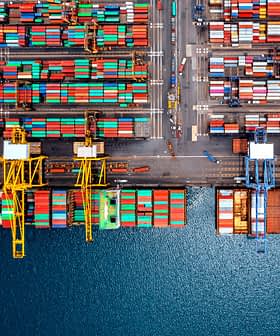Production, Exports Down in Tunisia but Optimism Remains High
Tunisian olive oil production and exports are down for this season as the country plans further investments in the sector.
Tunisia’s olive oil production is expected to decrease by 28.5 percent this year, with exports also predicted to decline, due to drought conditions in some olive-growing regions of the country. Despite the decrease, CEO Chokri Bayoudh is optimistic about the upcoming season and plans to double exports of refined oil over the next five years, with Tunisia also seeking new export markets and investments in the olive sector.
Figures released by Tunisia’s National Office for Oil reveal that olive oil production is expected to reach 100,000 tons this year, which represents a 28.5 percent decrease compared to the 140,000 tons produced in the 2015/2016 crop year. Exports are expected to dip to 75,000 compared to 100,000 last year.
Chokri Bayoudh, CEO of Tunisia’s National Office for Oil, told the Tunisian press agency Tunis Afrique Presse (TAP) the fall in production is due to drought conditions in some olive-growing regions of the country.
Figures released by the National Office on April 10 reveal that from November 2016 to March 2017, the country exported 49,076 tons of olive oil. Of this figure, 42,483 tons were exported in bulk to 20 countries, with Italy, Spain, the US, and France being the largest importers, and Morocco at 5th place. The remaining 6,593 tons were exported as refined olive oil to 39 countries.
Over the past five years, 20,000 tons of refined olive oil have been exported, compared to only 7,000 tons during the previous five years. This increase reflects aims to double exports of refined oil to 40,000 tons over the next five years, Bayoudh said.
As reported by Afrique La Tribune, Bayoudh told Tunisian radio that he’s optimistic about the upcoming 2017 – 2018 season and expected a good year for both production and exports. Keen to make further investments in the olive sector, Tunisia is also awaiting a loan from the World Bank for the development of olive plantations and forest resources, as well as assistance to citizens who would like to further develop these sectors.
A Tunisian delegation also recently visited the UK and Japan to attract potential new export markets, and the country is set to host the 4th edition of the Sousse International Olive Fair from April 20 to 23, with 120 exhibitors attending from Europe and the Middle East.
In 2014/2015, Tunisia experienced a record olive harvest, producing 340,000 tons of olive oil, which in that year made it the second world producer after Spain.
In the same year, Tunisia exported 304,000 tons of olive oil and was the largest exporter. Since then, it has taken fourth place as producer, and third place as exporter after Spain and Italy.









